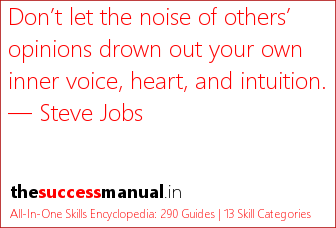A Guide To Job Hunting For College Graduates
Job search | Job hunting
1. It will take time, so start early
Get things motion in the final year- initial resume, summer internships, interview practice, practicing writing good cover letters (at least it will be good practice for your business writing), searching for jobs in your niche and seeing what the early-stage jobs are asking for, and so on. Be motivated. Be open minded.
2. Have an idea of one main job that you will go after (and keep a second job as plan B)
This focus will help you do research on the job (responsibilities, skill sets, salaries, locations), companies that offer that kind of job, the industries these companies are in.
3. There is no single job search method that will do the job (pardon the pun)
As 'What Color is my Parachute' points out, most companies do not advertise the job vacancies. They fill the job through referrals and such. So, career fairs, online job boards, job aggregators (e.g. indeed.com) may not get the job done. So, you do all this and also ask around, anyone and everyone who is in a position to recommend you, or at least point to where the vacancies are. Relationships matter, people.
4. Learn from the successful ones.
Learn from how others in your class who got an offer achieved that. Learn about how people already much ahead in your field got their way in. Talk to people. Ask in online forums, on social media. Ask everyone you come across. There is no shame in asking.
5. Dealing with Major-Career mismatch
See Part 1 for more on this. If you don't come across opening, despite all your efforts, consider upskilling (get some salable skill or a side skill quickly), volunteership, internships, part-time work to pay the bills, or some project to build experience.
7. There are such things as job search skills.
These include: phone interview skills, e-mail writing skills, hard copy correspondence skills, resume writing skills, your online presence, your interviewing skills, handshake/overall personality, dining etiquette and such.
8. A quick guide to different job search methods
Offline:
On-Campus Interviewing Programs: Not every industry or type of job are represented.
Career fairs and job fairs: You should let go of your reserve, go and check out things for yourself. Carry you resume in your hand, a 15 second elevator speech in your mind and a smiling face in front.
Working, volunteering, interning, etc.: Perhaps one of the top options, there is no guarantee that you will get a job afterwards, but the experience goes in your resume and one day will surely pay off.
Networking: The top method that works for college graduates. The shy and the nervous will have to work at it.
Researching sources to find potential employers and unadvertised jobs: Takes time and is often a corollary to networking.
Online:
Email: Try out a 'cold email out of the blue' and send an elegant letter to someone really high up in a big company.
Employer's website: Must check these out asap, but first you need to have an idea of employers in your niche
Online Job boards: Start with a job board aggregator such as indeed.com instead.
Career-field-specific job listing websites; Still, all jobs aren’t found online.
Posting your resume online and in resume books: An utterly passive job search method. You wait and you wait, forgetting your skills are not necessarily among the most desired and rare.
Please also read the guide to 'career fairs' and 'Career advice for college students'.
❤ If you liked this, consider supporting us by checking out Tiny Skills - 250+ Top Work & Personal Skills Made Easy